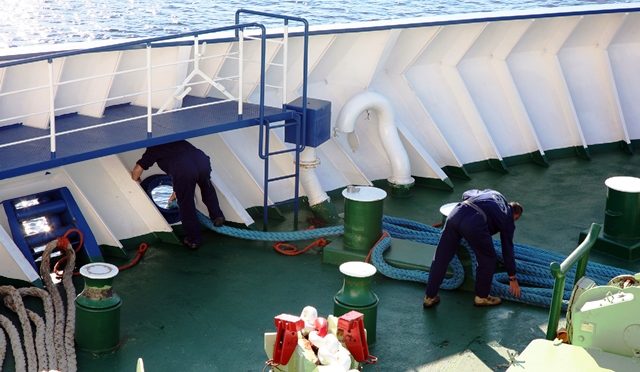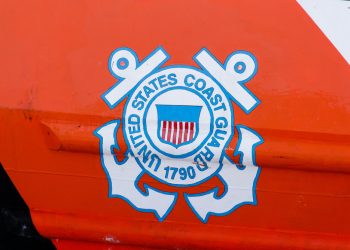The US Coast Guard has issued Marine Safety Information Bulletin, 2014 Amendments to the Maritime Labour Convention.
The purpose of this bulletin is to describe how U.S. vessels, through existing national laws and regulations, collective bargaining agreements and established industry practices, conform to the above mentioned MLC provisions and how they will be integrated into the existing voluntary inspection program that was established through the related Navigation and Vessel Inspection Circular (NVIC).
The 2014 Amendments to the Maritime Labour Convention (MLC) established requirements for shipowners to provide financial security for the repatriation of seafarers and financial security relating to shipowners’ liability in cases of a seafarer’s injury or death. In addition, a “certificate or other documentary evidence” of this required financial security is to be carried on board the vessel.
The U.S. conformance measures for these MLC requirements are detailed below:
a) Financial security for repatriation
U.S. law provides for the repatriation of seafarers working aboard such ships at no cost to them in case of illness, injury, or abandonment (including sale of vessel). In addition, negotiated collective bargaining agreements provide supplementary arrangements concerning repatriation. Owners or operators of U.S. Flag merchant ships are responsible for the repatriation of all seamen separated from their vessels at foreign ports for any reason (ill or injured) including stragglers, except in cases of shipwreck, desertion, or other acts of misconduct by the mariner. In the event that the vessel is unable to repatriate the seafarer, the local U.S. consular officer will arrange the repatriation, with costs to be borne by the U.S. government.
b) Financial security relating to shipowners’ liability
The U.S. maintains a comprehensive system of worker protections associated with a shipowner’s liability for medical care needs arising from seafarer employment. This consists of statutory laws such as the Jones Act and the Death on the High Seas Act. Additionally, principles of general maritime law such as maintenance, cure and unseaworthiness hold the shipowner liable for seafarers’ costs associated with injury, sickness and death in connection with their employment. These protections are broad and well established and include both fault-based and strict liability principles; meaning seafarers may expect coverage even when the cause of their injuries is their own negligence or bad judgment. Additionally, there are extensive U.S. laws that assist all workers with medical expenses and care associated with work related injuries, both immediate and long-term social security schemes.
Lastly, under U.S. law, the vessel itself is considered personified, allowing seafarers to assert a claim against the vessel on which they are employed for recovery of costs associated with injury or sickness. The same applies to seafarers’ contractual claims for payment of earned wages and other liabilities. In such an action against the vessel, it may be arrested and held until such time as the owner/operator provides assurances of an ability to pay the required amounts. Claims by seafarers for wages or personal injury are given a high priority when considering a vessel’s potential liability to any party asserting a maritime lien.
The amendments and associated requirements enter into force on January 18, 2017.
Further details may be found in the bulletin herebelow
Source:USCG





























































